Related Research Articles
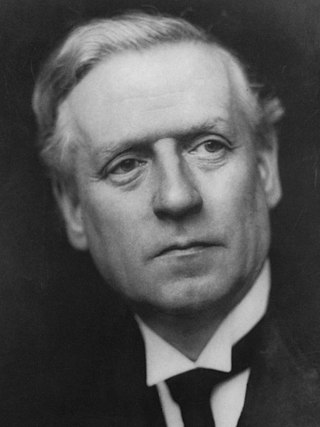
The January 1910 United Kingdom general election was held from 15 January to 10 February 1910. The government called the election in the midst of a constitutional crisis caused by the rejection of the People's Budget by the Conservative-dominated House of Lords, in order to get a mandate to pass the budget.
South Dublin, a division of County Dublin, was a county constituency in Ireland from 1885 to 1922. It elected one Member of Parliament (MP) to the House of Commons of the Parliament of the United Kingdom, using the first past the post voting system.
Islington West was a borough constituency in the Metropolitan Borough of Islington, in North London.
The January 1918 Prestwich by-election was a by-election held on 31 January 1918 for the British House of Commons constituency of Prestwich in Lancashire.
The 1914 North East Derbyshire by-election was a Parliamentary by-election held on 20 May 1914. The constituency returned one Member of Parliament (MP) to the House of Commons of the United Kingdom, elected by the first past the post voting system. About a third of the electorate were directly involved in the mining industry. This was the penultimate by-election to take place before the outbreak of the First World War. It demonstrated the weakness of support for the Labour party in 1914 when opposed by a Liberal party candidate.
The Manchester South by-election was a Parliamentary by-election held on 5 March 1912. The constituency returned one Member of Parliament (MP) to the House of Commons of the United Kingdom, elected by the first past the post voting system.
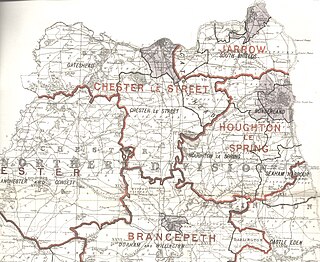
The 1914 North West Durham by-election was a Parliamentary by-election held on 30 January 1914. It returned one Member of Parliament (MP) to the House of Commons of the United Kingdom, elected by the first past the post voting system.
The 1913 Wick Burghs by-election was a Parliamentary by-election held on 8 December 1913. It was a Scottish Highland constituency that returned one Member of Parliament (MP) to the House of Commons of the United Kingdom, elected by the first past the post voting system. The constituency was a district of burghs representing the parliamentary burghs of Cromarty, Dingwall, Dornoch, Kirkwall, Tain and Wick. The by-election took place during the third anniversary of the Liberal Government's re-election of December 1910. It was thought to be a key indicator to the outcome of the following general election anticipated to take place in 1914–15.
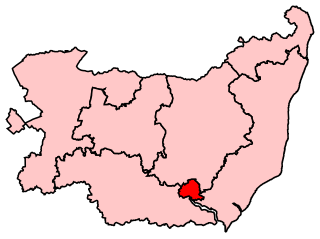
The 1914 Ipswich by-election was a Parliamentary by-election held on 23 May 1914. The constituency returned two Members of Parliament (MP) to the House of Commons of the United Kingdom, elected by the first past the post voting system.
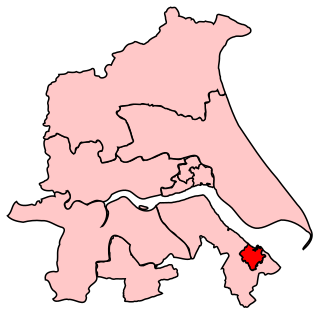
The 1914 Great Grimsby by-election was a Parliamentary by-election held on 12 May 1914. The constituency returned one Member of Parliament (MP) to the House of Commons of the United Kingdom, elected by the first past the post voting system. It was one of the last by-election contests to take place before the outbreak of the Great War, and provided a good indicator of how the main parties would have performed at an anticipated general election for 1914 or 1915.
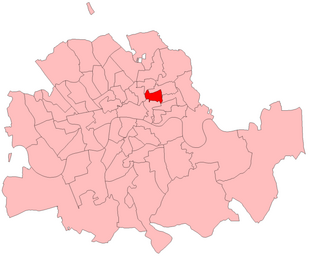
The 1914 Bethnal Green South West by-election was a Parliamentary by-election held on 19 February 1914. The constituency returned one Member of Parliament (MP) to the House of Commons of the United Kingdom, elected by the first past the post voting system.

The 1913 Linlithgowshire by-election was a Parliamentary by-election held on 7 November 1913. The constituency returned one Member of Parliament (MP) to the House of Commons of the United Kingdom, elected by the first past the post voting system.
The 1912 Midlothian by-election was a Parliamentary by-election held on 10 September 1912. The constituency returned one Member of Parliament (MP) to the House of Commons of the United Kingdom, elected by the first past the post voting system.
The 1913 Londonderry City by-election was a Parliamentary by-election held on 30 January 1913. The constituency returned one Member of Parliament (MP) to the House of Commons of the United Kingdom, elected by the first past the post voting system.
The 1914 Belfast East by-election was held on 6 April 1914. The by-election was held due to the death of the incumbent Irish Unionist MP, Robert McMordie. It was won by the Irish Unionist candidate Robert Sharman-Crawford, who was unopposed.
The 1914 Londonderry City by-election was a Parliamentary by-election held on 30 November 1914. The constituency returned one Member of Parliament (MP) to the House of Commons of the United Kingdom, elected by the first past the post voting system.
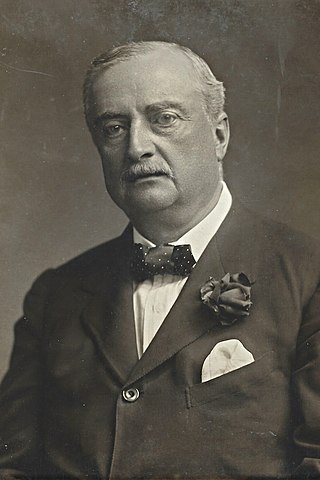
The Irish component of the December 1910 United Kingdom general election took place between 3 and 19 December, concurrently with the polls in Great Britain. Though the national result was a deadlock between the Conservatives and the Liberals, the result in Ireland was, as was the trend by now, a large victory for the Irish Parliamentary Party. The IPP supported the Liberals to form a government after the election. This was to be the party's last victory, however. Due to the outbreak of World War I in 1914, the next general election would not be held until 1918, by which time events both in Ireland and Britain and outside would conspire to see the rise of a new nationalist party, Sinn Féin, and the subsequent demise of the IPP.
The 1914 East Galway by-election was held on 4 December 1914. The by-election was held due to the death of the incumbent Irish Parliamentary MP, John Roche. It was won by the Irish Parliamentary candidate James Cosgrave who was unopposed due to a War-time electoral pact.
The 1914 West Wicklow by-election was held on 20 August 1914. The by-election was held due to the death of the incumbent Irish Parliamentary MP, Edward Peter O'Kelly. It was won by the Irish Parliamentary candidate John Thomas Donovan who was unopposed due to a War-time electoral pact.
The 1914 North Galway by-election was held on 21 July 1914. The by-election was held due to the incumbent Irish Parliamentary MP, Richard Hazleton, who was seeking re-election after submitting his own bankruptcy petition. It was retained by Hazleton who was unopposed.
References
- Parliamentary Election Results in Ireland, 1801–1922, edited by B.M. Walker (Royal Irish Academy 1978)